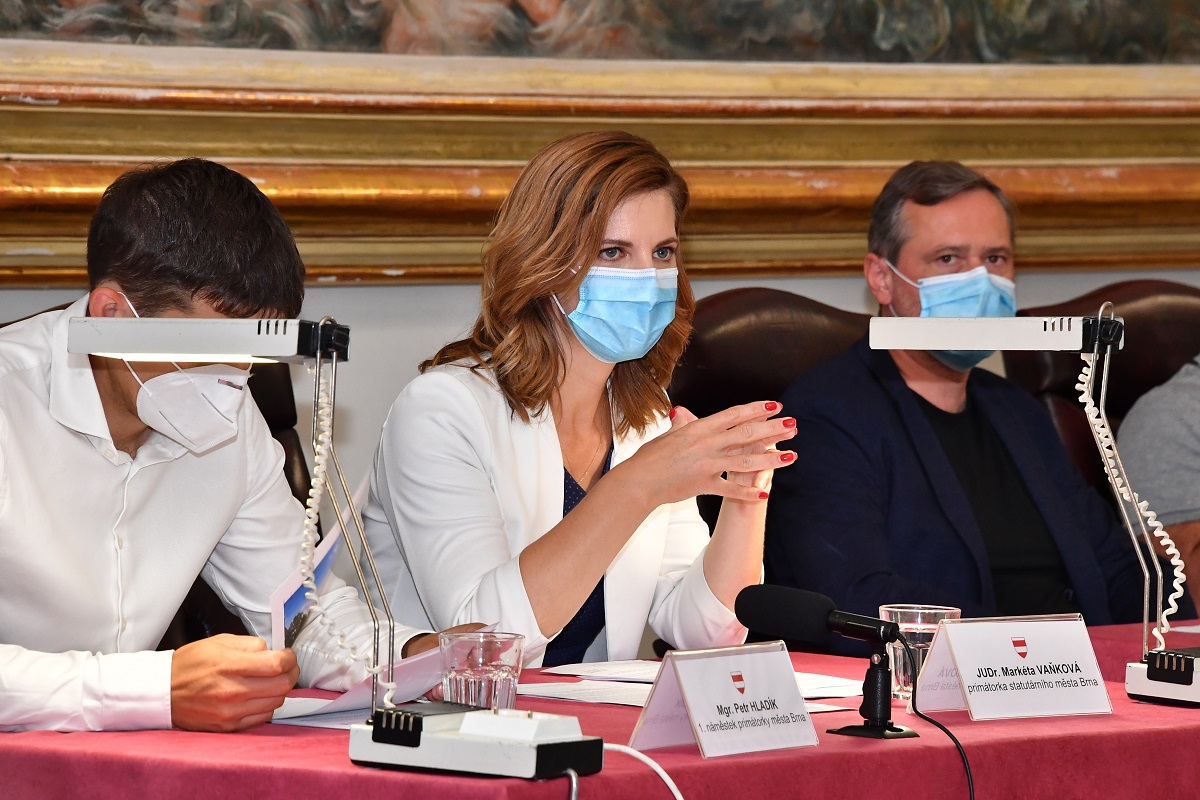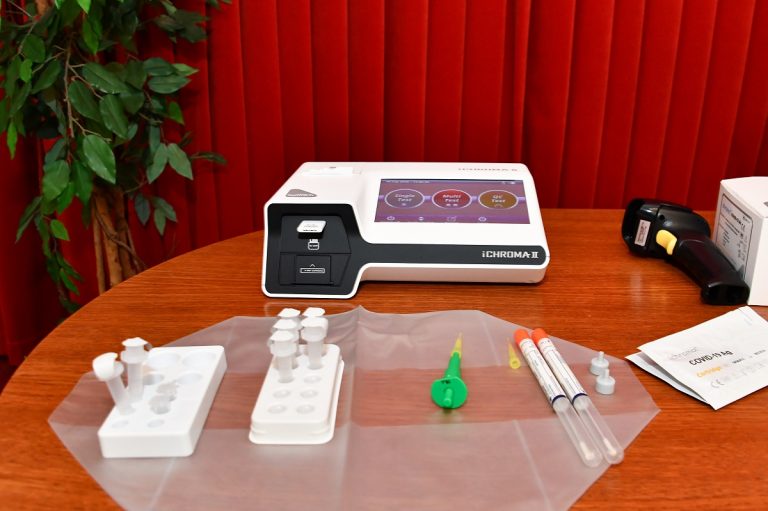Rapid tests for coronavirus will be available at all homes for the elderly in Brno and the Center for Social Services. Medical staff in these facilities will be trained to perform the tests, which give a rapid diagnosis within 12 minutes to 95% accuracy. Photo: Rapid diagnostic test kit via MMB Archive.
Brno, Sep 18 (BD) – The 11 homes for the elderly in Brno will each receive rapid tests for coronavirus to use in their facilities, along with the Center for Social Services. In the best case scenario, the facilities will have the capacity to test all staff members and clients for SARS-CoV-2 coronavirus on the property.
Brno Mayor Markéta Vaňková said that “This is a significant prevention against the spread of Covid-19 and the approach of the city of Brno is, according to my information, completely unique in the Czech Republic in this respect. All organizations will be able to purchase test kits and an evaluation device. Medical staff working in each home will be trained to handle nasopharyngeal sampling with swabs and detect infection. These are rapid diagnostic tests that detect the presence of viral antigens secreted by the coronavirus in the respiratory tract in early or acute infection. The evaluation of the test is immediate – it only takes 12 minutes – and the proven reliability is around 95 percent.”
The Mayor added that the decision to take this approach was motivated by a conference call in May with the Mayor of Daegu in South Korea. This method was used to manage and overcome a situation far more severe than the one currently affecting Brno.

All the equipment will be paid for from the budgets of the senior care homes. One coronavirus testing set costs CZK 312 and the device costs CZK 20,000. Deputy Mayor for Social Affairs Robert Kerndl said “It is possible to use one evaluation set for three to five people, modeled on so-called cross-testing. Theoretically, this way we can reduce the cost of testing to only tens of crowns per person.” Those who test positive for coronavirus will be quarantined immediately and undergo a confirmatory laboratory PCR test.
Vaňková commented that if this method of testing proves to be successful, the offer may be extended to other facilities such as schools, municipal companies and organizations. She also mentioned the possibility of creating a mobile or permanent test site which uses this approach to test clients.







